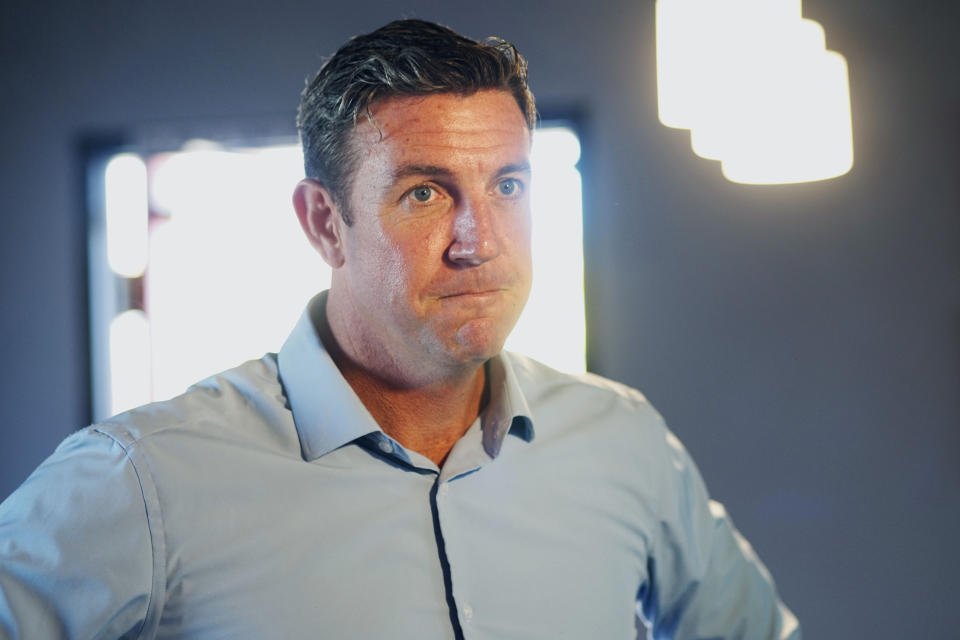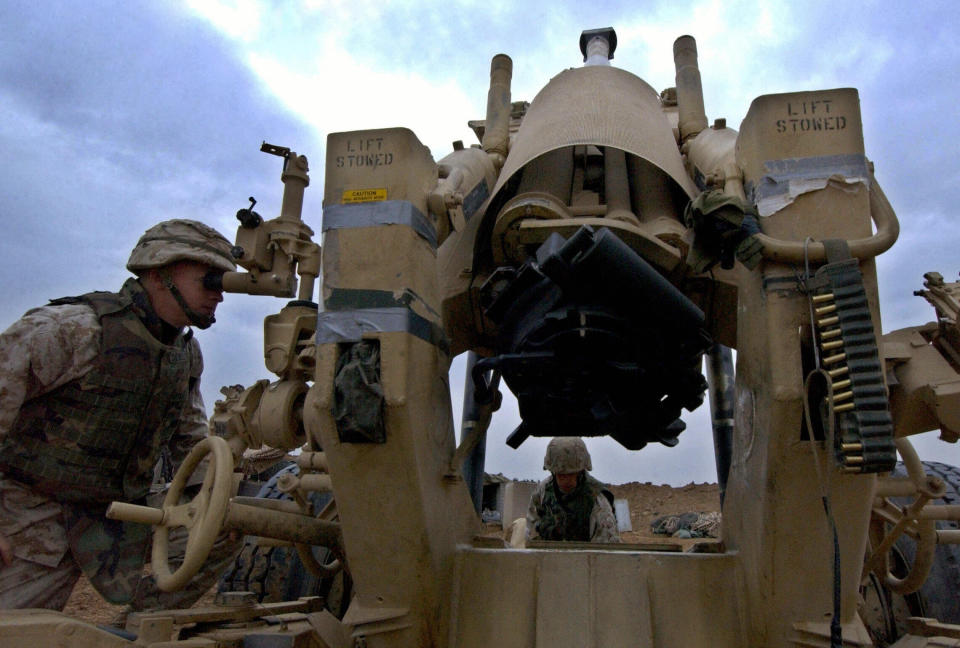GOP congressman, defending accused war criminal, says his unit 'killed probably hundreds of civilians' in Iraq combat
California Republican Rep. Duncan Hunter, defending a Navy SEAL accused of war crimes in Iraq, said his own unit "killed probably hundreds of civilians," unintentionally, during his 2004 tour as a Marine field artillery officer in Fallujah, Iraq.
In an interview with Barstool Sports' Zero Blog Thirty podcast, Hunter explained his support of Navy SEAL Special Operations Chief Edward Gallagher, who has been accused of war crimes and is being considered for pardon by President Trump.
"I was an artillery officer, and we fired hundreds of rounds into Fallujah, killed probably hundreds of civilians, if not scores, if not hundreds of civilians," Hunter said. "Probably killed women and children, if there were any left in the city when we invaded. So do I get judged too?"

Ordinarily, it is not a crime to inflict accidental casualties while firing at enemy positions. Estimates of the number of civilians killed during and after the invasion of Iraq vary widely but are generally put in the low six figures.
Gallagher faces a premeditated-murder charge for the stabbing death in 2017 of a teenage ISIS fighter who was brought in for medical treatment. Gallagher allegedly posed for a picture with the prisoner’s body. “I frankly don't care if he was killed, I just don't care," Hunter said about the ISIS fighter. He added: "Even if everything that the prosecutors say is true in this case, then, you know, Eddie Gallagher should still be given a break, I think."
Last week, Hunter defended Gallagher, who was turned in by members of his unit, while speaking at a town hall meeting in Ramona, Calif. The congressman, who is facing trial on federal corruption charges after allegedly misusing over $250,000 of federal campaign funds for personal use, said he’s “done the exact same thing” as Gallagher, taking photos of people he presumably captured or killed while at war.
“Eddie did one bad thing that I’m guilty of too, taking a picture with a body and saying something stupid and then texting that,” Hunter said frankly. “He took a picture with the body with his knife out and texted it to some buddies and said, ‘I got this one with my knife.’”
“I’ve taken pictures just like that when I was overseas,” he continued, eliciting groans from his audience. “Didn’t text them to anybody, didn't put them on Facebook or Instagram, but a lot of my peers, a lot of us have done the exact same thing.”

In response to Hunter’s comments, a Marine spokesman, Maj. Brian Block, said in a statement, "Marines are required to comply with the law of war during all military operations, however characterized. If mistreatment of the dead were committed intentionally, it could be considered a violation of the law of war. U.S. service members have been charged and punished under the Uniform Code of Military Justice [UCMJ] for posing for pictures with human casualties. Generally, the statute of limitations under the UCMJ is five years.”
While Hunter admitted to taking photos like Gallagher, he is not subject to the UCMJ because he is no longer in active duty, said Eugene Fidell, who teaches military law at Yale University.
“If the Justice Department were to charge [Hunter], the case would very likely be thrown out,” Fidell told Yahoo News. “But his behavior raises substantial questions as to whether he should still be commissioned as a Marine officer.”
In its 2018 report “Civilian Casualties in Connection With United States Military Operations,” the Defense Department states that U.S. forces “protect civilians because it is the moral and ethical thing to do. Although civilian casualties are a tragic and unavoidable part of war, no force in history has been more committed to limiting harm to civilians than the U.S. military.”
Hunter, speaking from personal experience, said he “got to watch the rules of engagement change” to “compassionate combat” around 2004 and 2005, a couple of years after the start of the Iraq War, “when they went from ‘You can kill anybody that’s bad and it’s out past 9 o’clock at night’ to ‘You can’t shoot somebody unless they’re shooting at you first.’”
While Trump hasn’t confirmed whether he’ll pardon Gallagher, the Navy SEAL has been released from custody ahead of his trial, which is to begin later this month. Trump's personal attorney Marc Mukasey is one of the lawyers representing Gallagher.
_____
Read more from Yahoo News:



